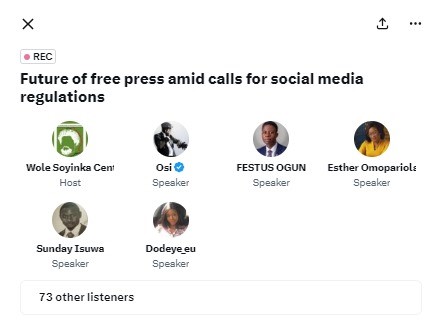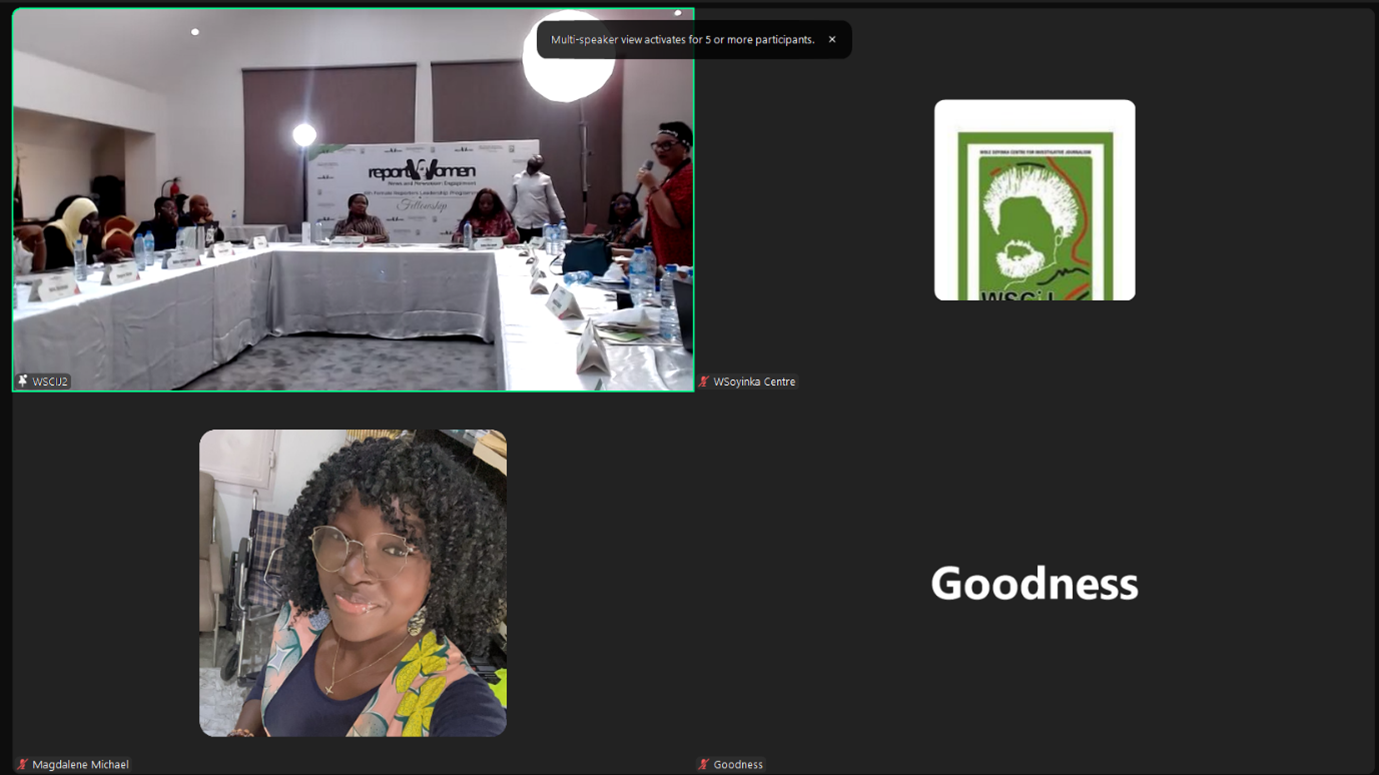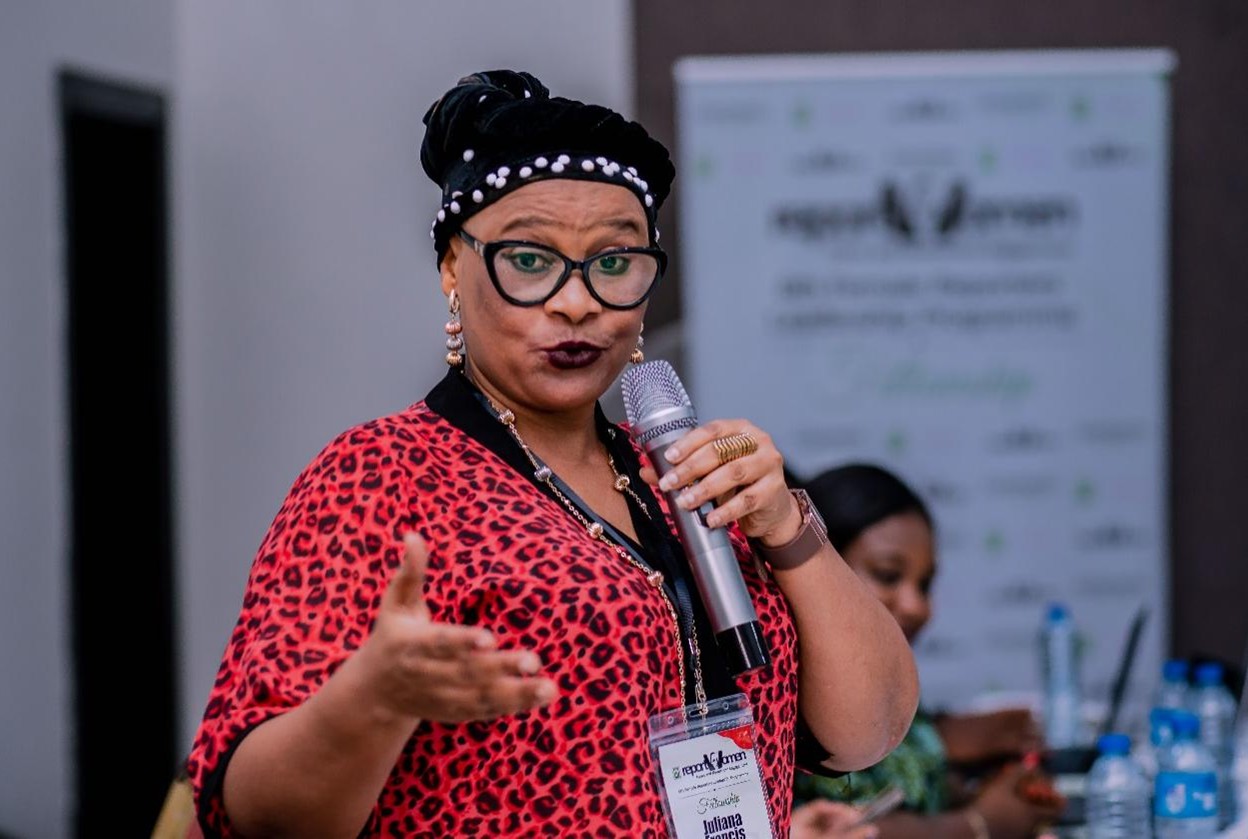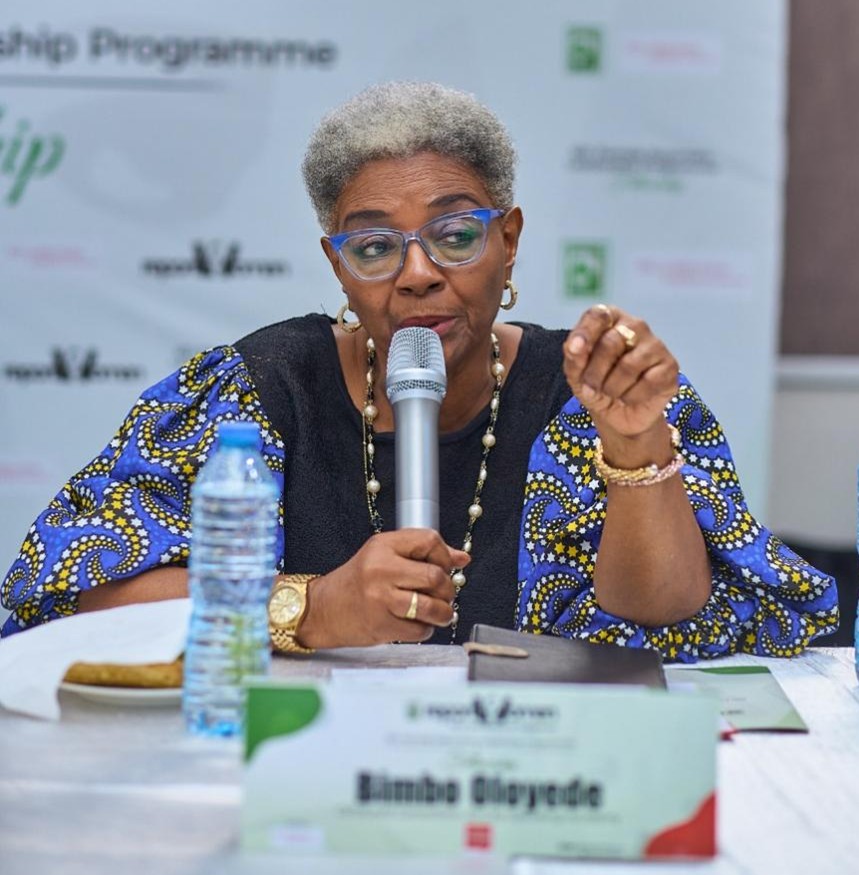Speakers at the Journalism & Society Conversations held by the Wole Soyinka Centre for Investigative Journalism (WSCIJ) in commemoration of the 2024 World Press Freedom Day, on Tuesday, 7 May 2024, have condemned the increase in the number of laws that restrict the media, particularly in the use of the social media. They encouraged journalists to be responsible with their journalism, using social media for media literacy and amplifying their stories for more impact.
Moderated by Esther Omopariola, News Anchor, TVCNews, the conversation titled ‘Future of free press amid calls for social media regulation’ had Sunday Isuwa, News Editor, Leadership; Osikhena Dirisu, Group Programmes Director, Megalectrics; Festus Ogun, Managing Partner, FOLegal; Franca Aiyetan, Secretary, National Broadcasting Commission (NBC) and Dodeye Ebri, Programme Officer, Public and Private Development Centre, as panellists. You can listen to the conversation here.
In his opening statement, Isuwa said a free press is not a blank cheque for unrestricted social media usage but a licence for responsible journalism. He stressed the thin line between social media and traditional journalism, encouraging journalists to leverage social media’s technology and reach to spotlight their stories and issues. The media consultant underscored the need for users to factcheck and verify information to prevent censorship. He said social media fosters positive discourse for societal well-being and empowers journalists to share stories without editorial gagging.
On her part, Aiyetan raised concerns over the negative impact of social media on public discourse and national unity if not controlled, especially in Nigeria’s diverse context. She noted that unchecked contents drown reasonable voices and escalate ethnic tensions, citing the dangers of fake news. Aiyetan said that NBC collaborates with the African Communication Regulatory Network (ACRAN) to update laws and engage social media platform backend operators in combating content that may threaten national security. Aiyetan underscored the importance of media literacy and individual responsibility in social media usage, clarifying that regulations will promote responsible online usage and not stifle free speech.
While making her contributions, Dodeye voiced concern about the proliferation of government agencies and stringent regulations to suppress diverse opinions. She affirmed that this could deter people from expressing themselves on social media. Rather than regulating social media, she suggested that government institutions promote openness and accountability and adhere to due process. To enable individuals to hold the government accountable, she also stressed the significance of media literacy training provided by civil society groups (CSOs).
Ogun condemned restrictive laws such as the Official Secrets Act, the NBC Act, and the Cybercrime Act for stifling the Nigerian media. He emphasised the need for an efficient judiciary to decriminalise libel, and criticised the government’s fear-driven attempts to control the media. He argued that precise legal wording is essential to prevent misinterpretation by law enforcement and called for amendments to existing laws to reflect contemporary realities rather than creating new ones.
According to Osikhena, the government seeks more regulations due to its lost monopoly over information control since the rise of social media. While recognising the need to combat misinformation, he warned against infringing on free speech and urged against hoarding information to avoid encouraging guerrilla journalism. He recommended a hybrid approach to social media regulations, considering rural reliance on TV and radio versus urban dependence on social media. Ijeoma Adagba-Okereke from Centre for Journalism Innovation and Development (CJID) noted that despite harassment and attacks, evidence-based journalism rooted in truth will prevail.
Olaoluwa Adeleye, Programme Officer, WSCIJ, stressed the significance of discussing issues that touch on journalism, technology, and government in light of the blurring lines that separate traditional media and social media in the modern information era. The WSCIJ Journalism & Society Conversations is an online discussion platform that promotes national and international dialogue on the role of the media in society. This online platform provides stakeholders with a safe setting to evaluate media performance and share experiences.








